Skype for Mac 7.0 and Skype for Windows 7.0 Preview sport radical new look
Microsoft has released Skype for Mac 7.0 and Skype for Windows 7.0 Beta, unveiling a major redesign of its Skype desktop client in the process.
Version 7.0’s new design mirrors closely that found on Skype’s mobile platforms, and is designed to provide users with a more unified experience across all devices they use it on.

Rise of Macs: Apple is the fifth-largest PC maker
The PC market is not what it once used to be. Both shipments and sales are in the proverbial toilet. Old devices are still adequate years down the road, and more than capable of running newer versions of Windows, if users wish to upgrade -- many don't. Other types of devices, like tablets, can do the basic tasks just as well, if not better than the PC, and, for many in emerging markets, smartphones are what they buy these days to connect them to the Internet.
There are other changes afoot as well. Thanks to the increasing popularity of its Macs, Apple, once known as a niche vendor with a limited appeal, now ranks as the fifth-largest PC maker worldwide, according to a new report from research firm IDC. How did it get here? Well, blame the lower prices, among other things.

Windows 10 is coming, but do we still need Microsoft's operating system?
For the past couple of months I have been working from my porch -- I enjoy the outdoors when weather permits. In doing so, I have adopted a Chromebook, which gets me by quite well, but leaves me in a quandary -- do we still need Windows? The answer to that question is quite a bit more complicated than it seems.
Most people will jump up and yell "yes" -- or Microsoft hopes they will. But it really comes down to usage, and for many people out there the operating system is no longer the be all-end all of computing.
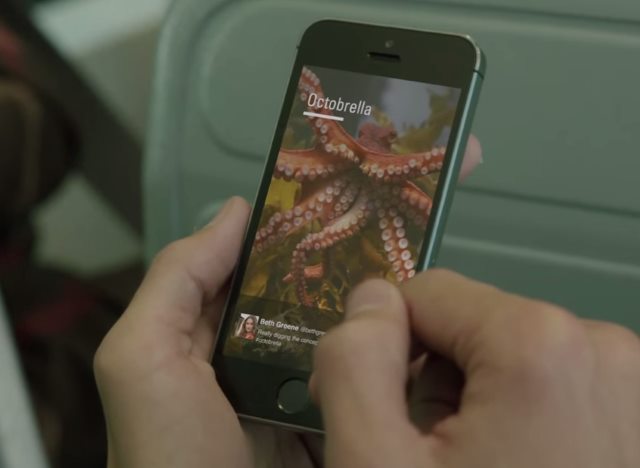
Microsoft launches Sway -- Office's new idea collection tool
Having unveiled Windows 10 yesterday, Microsoft today welcomed a new addition to the fold in the form of Sway. This is the latest member of the Office family and it's being billed as a way to "reimagine how your ideas come to life". What does this actually mean? In many ways, Sway is an extension of OneNote. It's a web-based way to collect content, store images and text, add videos, and generally piece together everything you might need for a presentation, project, or idea. Sway is currently a preview product and, in keeping with Microsoft's "mobile-first, cloud-first world" there's a strong focus on cross-platform compatibility and cross-device syncing.
Sway is an interesting blend of existing Microsoft products, but it also brings in some new ideas. It's integrated with OneDrive, and has the note-taking features of OneNote. The various templates that can be used to present the data that is collected gives it something of a feel of PowerPoint, but it could also be used for very simple planning and project management like a cut-down, accessible version of Microsoft Project. It's all web-based and Microsoft is touting it as a "new way for you to create a beautiful, interactive, web-based expression of your ideas".
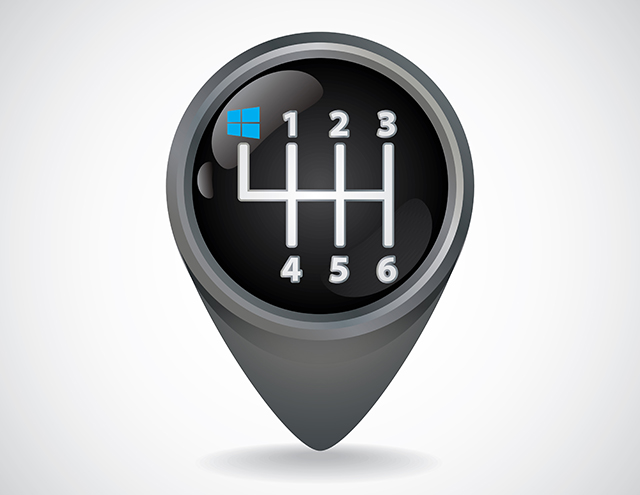
Windows 8.x goes back into reverse gear, losing the most usage share yet
Windows 10 really can’t come soon enough for Microsoft as its predecessor is continuing to tank. In August the tiled OS actually gained usage share -- according to web analytics firm NetMarketShare -- which was unusual as 8.x had lost users in the previous two months. But any suggestions of a recovery are swiftly crushed looking at September’s figures. Both Windows 8 and 8.x lost a load of usage share last month, while Windows 7 reached an all-time high. It’s Windows 7 users Microsoft really needs to be aiming for with Windows 10 (and if it can tempt XP users too, so much the better). In August, Windows 8 managed a 6.28 percent share of the desktop operating system market, but lost 0.69 percent in September. Windows 8.1, an OS which really should be growing, went from an all-time high of 7.09 percent to 6.67 percent, a drop of 0.42 percent. In total, Windows 8.x lost 1.11 percent share. Windows 7 on the other hand went from 51.21 percent in August to 52.71 percent in September, a gain of 1.5 percent. That’s its highest point ever. Windows XP, which should be losing share, dropped just 0.02 percent, going from 23.89 percent to 23.87 percent. So September was another dreadful month for Windows 8.x. It’s no wonder Microsoft decided to skip ahead to Windows 10 in an attempt to really distance its future OS from the current one.
// Photo Credit: i3alda/Shutterstock
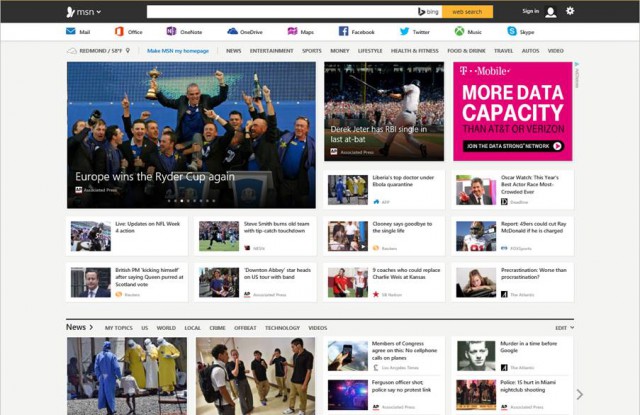
Microsoft rolls out the new MSN, rebrands Bing apps for Windows, Windows Phone
Microsoft did something rather unexpected earlier this month. The software giant unveiled a revamped MSN, saving the online portal from oblivion -- its biggest merit lately is being the default website for Internet Explorer. The new MSN looks great, connects users to Microsoft's consumer-facing cloud services, and can be tailored to suit their preference. It also makes it easy to trigger a search across the InterWebs. Heck, I have even said it might work as the Bing landing page.
Fast forward to today and Microsoft announces that more than 10 million users have tested the new MSN, with more than 80,000 of them also submitting feedback. Those numbers look really good. And they should, considering the online portal's Microsoft-focused audience. The feedback it has received must have been good also, as Microsoft announces it is rolling out the new MSN in the next three days.
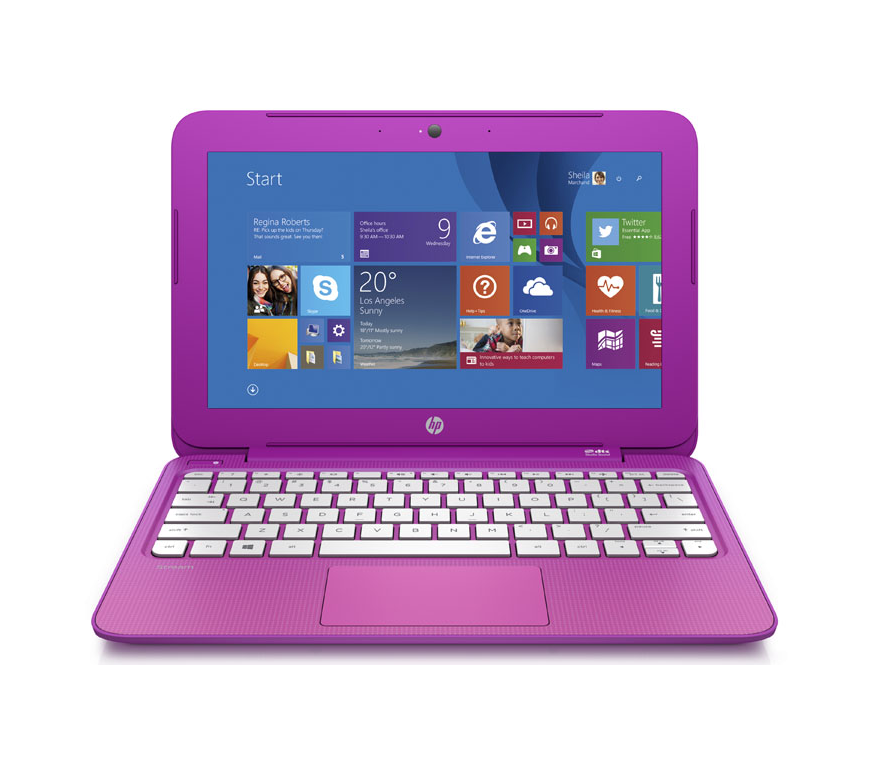
Chromebooks are in trouble -- HP unveils $199 Windows laptop and low-cost tablets
When I bought my first Chromebook, the 2012 Samsung model, I did it mostly for one reason -- price. I drove down to my local Best Buy and was blown away by how inexpensive it was; at $249 it looked like a MacBook Air and promised good battery life. Even though I knew the limitations of Chrome OS beforehand, I still handed over my money thinking I could find a place for it in my home. For the most part it was OK; I mean, it changed the way I thought about computing, but it soon became apparent that it could not replace my Windows machine. I didn't return it; I kept for basic typing on the go, but I later sold it as it collected dust. You see, my iPad Air when coupled with a keyboard-case was a better portable machine.
Now, in 2014, Chromebooks are making huge strides in homes, schools and the enterprise, but Windows still reigns supreme. While I do recommend Chromebooks for people low on cash that only have basic computing needs, today this changes. You see, HP announces the $199.99 Stream 11 laptop, and with a price that low, why would you bother with Chrome OS?
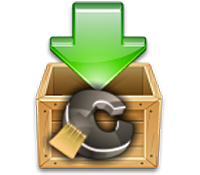
CCEnhancer 4.1 is available, extends CCleaner support to hundreds of programs
Ever felt frustrated by CCleaner’s relative limited support for third-party apps? Did you know you can -- with a lot of care -- add your own programs to its cleaning database? Does that sound a bit scary? No matter, you can add support for hundreds more programs with no fuss using a free tool called CCEnhancer 4.1.
The tool lets you easily augment the CCleaner information file with 1,000 other program options, and with the release of version 4.1, the tool makes it easier for you to add your own program entries from within CCEnhancer itself.

Migrating from Windows Server 2003: 12 best practices straight from the trenches
Most of us have hopefully managed to get off the sinking ship that was Windows XP. As much of a recent memory as that has become, a new end of life is rearing its head, and it's approaching fervently for those who haven't started planning for it. Microsoft's Windows Server 2003, a solid server operating system that's now about eleven and a half years old, is heading for complete extinction in just under 300 days. Microsoft has a fashionable countdown timer already ticking.
Seeing as we just finished our second server migration in a single week (a personal record so far), sharing some of the finer aspects of how we are streamlining these transitions seems like a timely fit. This braindump of sorts is a collection of best practices that we are routinely following for our own customers, and they seem to be serving us well so far.
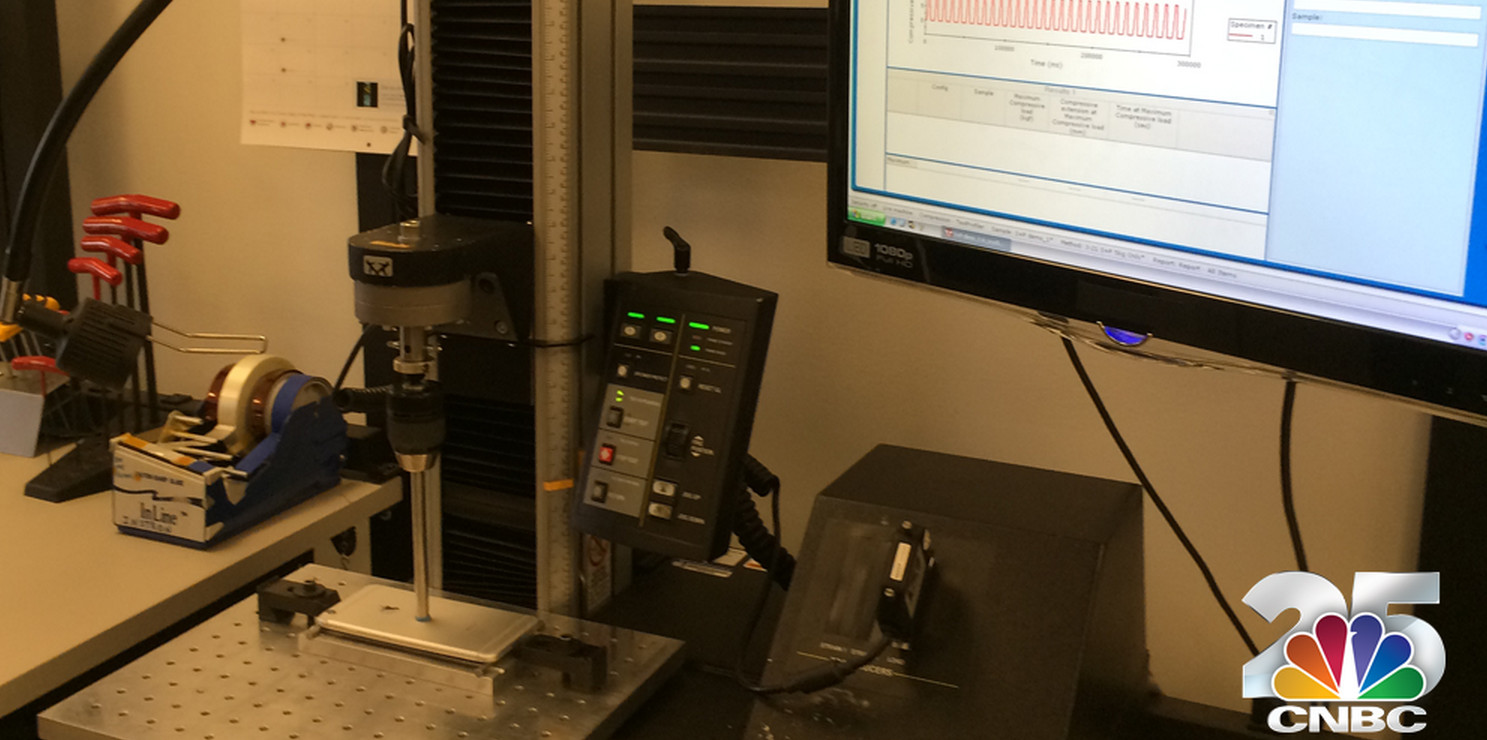
Apple tests the iPhone 6's durability using Windows XP
Apple has been under fire this week over claims that the iPhone 6 and 6 Plus bend when carried around in a tight jeans pocket, or someone making a YouTube video exerts a lot of force on the device. In an effort to counter this bad press, the tech giant has announced that just nine customers (to date) have contacted Apple with a bent iPhone (out of ten million), and it even went so far as to give CNBC an exclusive look inside its testing labs.
Anyone worried about how rigorously Apple tests its phones will have been calmed by the news that the iPhone 6 was exhaustively tested 15,000 times before being released, and the video showing that Apple uses only state-of-the-art equipment when testing for endurance and durability was reassuring too. Although CNBC then tweeted a picture from the labs revealing test results being recorded on a less-than state-of-the-art Windows XP system.
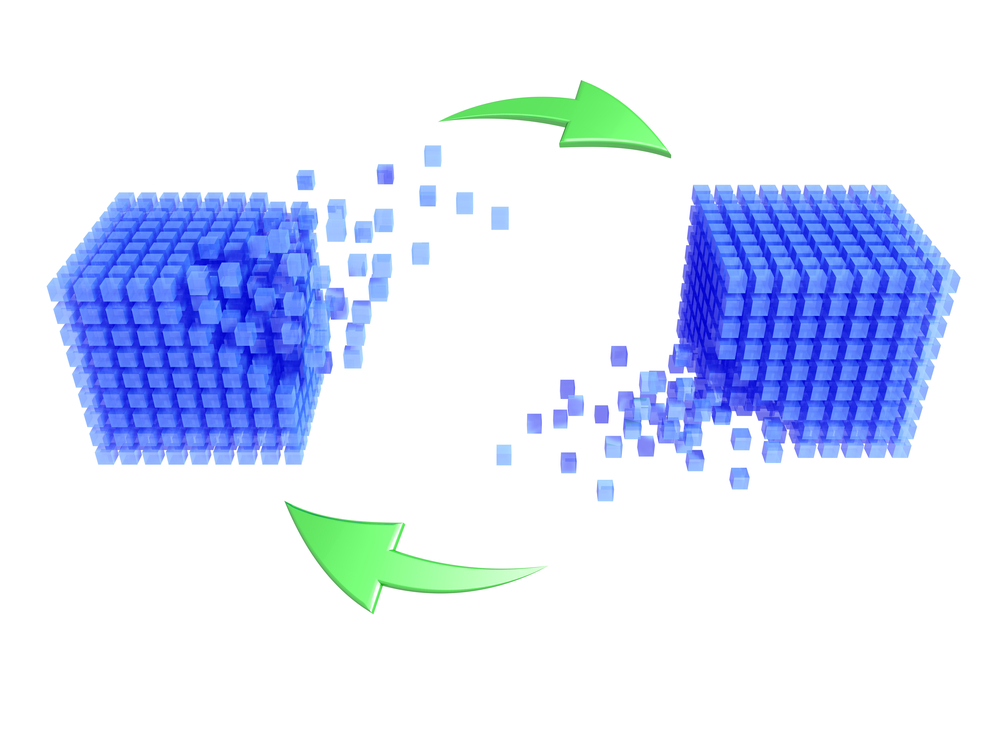
Adaptiva offers 5 Tips for a successful XP migration
Windows XP is still in use in a surprisingly high number of businesses. A recent survey suggests that more than half of organizations are still running it somewhere.
The survey was conducted by systems management specialist Adaptiva among more than 100 TechEd North America attendees showed that 53 percent still had some XP systems.

Pricey Macs and cheap Chromebooks squeeze Windows in the middle
No one likes to be in the middle seat on airplanes, right? It's a metaphor appropriate for retail -- and the place where Windows sits in NPD's final assessment of U.S. 2014 back-to-school sales growth. Chromebook continued a nearly two-year unit-sales surge, while Macs made last-minute gains, and Windows PCs survived only by aggressive tactics that pulled down average selling prices. For Microsoft and its partners, the strategy cut market share losses but at great hidden costs.
Back-to-school 2013 was a bloodbath, with unit sales through U.S. channels dropping by 2.5 percent annually -- a loss that pulled down overall PC sales during first half of last year. For 2014, sales are up about 3 percent overall, or 3.5 percent for notebooks and flat for desktops.

How to get an extra 15 GB of OneDrive storage for free
There is plenty of competition in the cloud storage space, but, unfortunately, for the most part any massive changes are limited to paid plans. They get bigger, they get cheaper, but the free tier, which most users get first, remains largely as limiting as it has always been. Sure, we get a couple of extra gigs for free here and there, but it's all smoke after all, meant to lead us right to the money grabbers. (And who could blame providers for trying to make money?)
Now, Microsoft is doing something rather interesting, as it gives OneDrive users nearly twice as much storage in the free plan, bumping the limit from a so-so 15 GB to a respectable 30 GB. The reason? Well, it's a damn clever one -- the extra freebie is meant to help Apple users who are having trouble with iOS 8 upgrades due to low available storage. Because this is an oft-discussed issue, it is bound to generate some free advertising for Microsoft and OneDrive.
![HooToo TripMate Elite -- the "electronic Swiss army knife" for tech travellers [Review]](https://betanews.com/wp-content/uploads/2014/09/hootoo.jpg)
HooToo TripMate Elite -- the "electronic Swiss army knife" for tech travellers [Review]
When I first learned about the HooToo it sounded, frankly, a bit nuts. Pitched as an "all-in-one device charger, AC adapter, personal cloud, travel router, Wi-Fi hotspot, and wireless bridge" I was instantly intrigued, but fearful that this was going to be a device that promised the world and delivered little. Was I setting my expectations too low? Before we look at things any further, it's probably worth spending a moment or two decoding what it actually is. One of its more basic functions is a rechargeable USB battery pack complete with two outputs. But there's more to the TripMate Elite. Much, much more.
The 3.2 x 3.2 x 1.0 inch (82 x 82 x 28mm) black box is home to a 6000mAH battery that's perfect for powering up a dead mobile or tablet on the move, but the 7oz (200g) package has plenty more tricks up its sleeve. As it's a portable battery pack, it's hardly surprising to find a couple of USB outputs, one kicking out 1A, the other 1/2.1A. Equally unsurprising -- but no less useful -- is the battery level checker on the adjacent side; tap the button and four blue LEDs let you know the charge level. But what's that next to the charge lights? Internet and LAN indicators? Curiouser and curiouser, said Alice.

Andy runs Android on your Mac, Windows 7 and 8 desktop
Almost three years on from its first release, BlueStacks is probably still the easiest way to run Android apps on your Windows desktop. But it also has issues: performance can be a problem, and you don’t get full control over your virtual device.
Andy is a new contender which takes a different approach, running an Android image with VirtualBox. It can be much more awkward to configure, but performance is great, and every aspect of the system can be tweaked to suit your needs.
